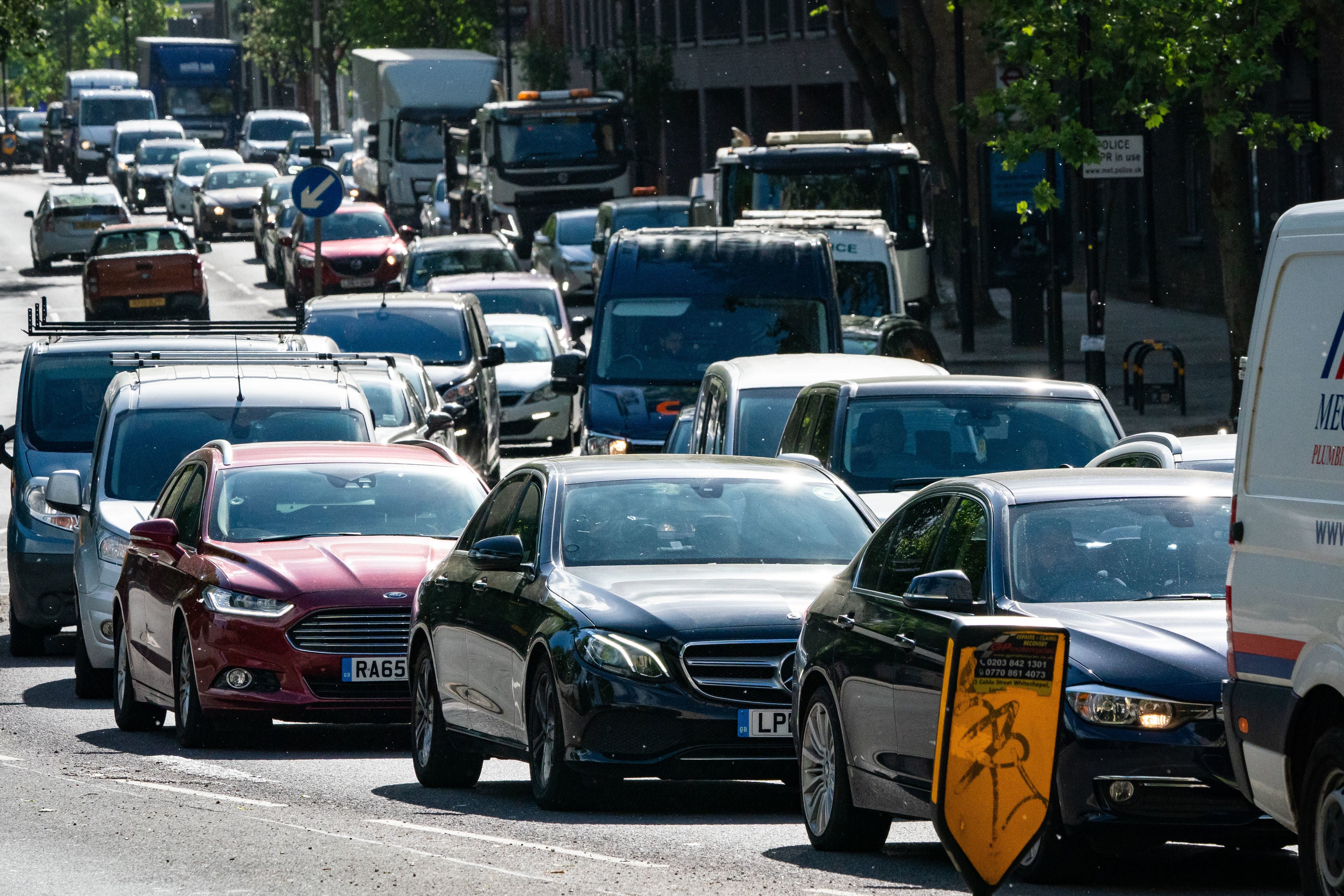‘Urgent action’ required as UK air pollution soars to higher level than before pandemic, think tank warns
Authorities must take ‘bold action’ to prevent surge in toxic air, think tank says

After a brief fall at the height of the national lockdown in spring, pollution levels across the UK are now higher than they were before the pandemic, exacerbating the impacts of the coronavirus, and putting millions of people at higher risk.
A new study has found toxic air is set to rise significantly when coronavirus control measures ease further, while the pandemic has pushed air quality concerns down the agenda as national and local policymakers grapple with immediate healthcare and economic impacts.
The analysis by independent think tank the Centre for Cities, revealed that while the spring lockdown reduced NO2 levels by 38 per cent on average across 49 cities and large towns, they subsequently rose again in the second half of the year as activity increased.
As a result, NO2 levels have now hit or exceeded pre-pandemic levels in around 80 per cent of places studied during the second half of 2020.
This is despite 98 per cent of the country remaining under significant lockdown restrictions – raising serious concerns air quality will significantly worsen once life returns to something resembling normality next year.
In some cities, such as Barnsley, Bournemouth and Portsmouth, NO2 levels in September were already even higher than they were before the spring lockdown.
The think tank has urged the government and local councils to take concerted action to tackle pollution.
“As the risk from Covid-19 reduces, and life returns to normal next year, policy makers must urgently revisit stalled pre-pandemic plans to reduce air pollution – which has been linked to 40,000 UK deaths per year,” the Centre for Cities said.
This should be done through discouraging car usage by introducing clean air zones that charge drivers, encourage more public transport usage through improvements to bus, rail and tram systems, and improving cycling and walking infrastructure to encourage more active forms of travel, the organisation said.
Centre for Cities’ chief executive Andrew Carter said: “Toxic air has contributed to the deaths of thousands of Covid-19 victims this year and, even after the pandemic ends, will remain a big threat to health – particularly for those living in urban areas.
“City leaders can reduce the threat of air pollution, but it will take political will. Discouraging car usage will be unpopular in the short term but, if coupled with the necessary improvements to public transport, the long-term benefits to public health and the economy will be huge and our cities will become better places to live.”
He added: “Now is not the time for politicians to delay on this.”
Private vehicle usage is the main generator of toxic air, the think tank said, and pollution has increased since May in line with the return of private cars to the road.
During the height of the first wave of infections, schemes such as London’s low traffic neighbourhoods (LTNs) were rapidly implemented to allow greater levels of walking and cycling and to discourage unnecessary car journeys.
Traffic in the capital has shot up in recent years. Between 2009 and 2019, the number of miles driven on London’s roads increased by 3.6 billion, according to the Department for Transport.
This meant that over the course of 2019, 22.6 billion vehicle miles were travelled on the capital’s 9,200 miles of road.
However, the schemes have been divisive, with many people complaining of the impacts on cars, leading to the removal of some of the measures.
The Centre for Research on Energy and Clean Air’s Hubert Thieriot said the government response to the pandemic proved authorities were capable of “bold action”, and he urged a rapid response to tackle the air pollution crisis.
He said: “With the Covid-19 pandemic came immense suffering both on sanitary and social fronts. Incidentally but importantly, it also reminded citizens that air pollution is not a given, and that bold actions on transportation could significantly improve people’s health and quality of life.”
“The role of transportation in UK cities’ air pollution has become apparent to everyone during the Covid-related lockdowns. That shared awareness offers policy makers an historical chance to implement bold transportation policies, as many other cities overseas have shown.”
Join our commenting forum
Join thought-provoking conversations, follow other Independent readers and see their replies
Comments



Bookmark popover
Removed from bookmarks